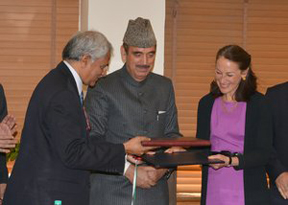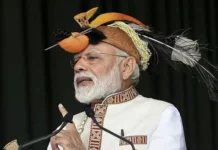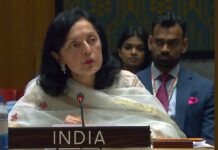
NEW DELHI: Against the backdrop of US actions against Indian pharma exports, Health Minister Ghulam Nabi Azad has done some plainspeak with the head of American drug regulator, asserting that Indian drugs should not be treated as spurious just because they are affordable.
Azad’s assertion came when he met US Food and Drug Administration (USFDA) Commissioner Margaret Hamburg here who conveyed concerns over the issue of quality control.
During the meeting between Azad and Hamburg, the two countries signed a Statement of Intent on Cooperation in the Field of Medical Products, which seeks sharing of information about lack of compliance with accepted current good manufacturing, clinical and laboratory practices medical or cosmetics company in one another’s country.
It also intends informing the respective regulatory authorities before undertaking inspections so that host-country inspectors may join inspections as observers.
Hamburg said there is a huge expectation and dependence of public on the regulator to ensure the quality of what they consume through drugs and food.
Responding, Azad said, “Being affordable should not mean they are cheap and spurious”.
Emphasizing India’s commitment to stringent regulatory mechanism, he said it has taken measures for capacity building, strengthening laboratories and more transparency.
He added that punishment up to life imprisonment is prescribed for those involved in making and selling spurious drugs.
In a separate meeting with Hamburg, Commerce and Industry Minister Anand Sharma also expressed concern over the treatment meted out to Indian companies, including Ranbaxy, by the US health regulator.
Although the ministers stopped short of calling the USFDA actions as discriminatory, India in no uncertain terms said the country’s pharma firms were being subjected to ‘disproportionate penalties’ in some instances.
Discussion Document
Sharma said India would submit a discussion document on the issues to the US.
“We are going to give a non-paper (to the US) overall on some of our concerns, when it comes to duration for the registration process for the filing,” Sharma told reporters after the meeting.
Hamburg said the meeting was “excellent” and didn’t comment further.
An official said India drew the Commissioner’s attention to the fact that most of the time, audit inspections were not followed by discussions with companies. In some cases, clarifications were sought but even before a response, harsh decisions were taken.
“Attention was also drawn to disproportionate penalties imposed by USFDA on some companies,” the official added.
The non-paper would highlight India’s concerns with a view to seeking an early resolution on these issues.
Azad, in his meeting with Hamburg, defended Indian medicines, saying “being affordable should not mean they are cheap and spurious.”
Hamburg, however, underscored US concerns over the issue of quality control, stressing that there is huge expectation and dependence of the public on the regulator to ensure the quality of what they consume through drugs and food.
The USFDA has taken a series of actions against Indian pharmaceutical firms, restricting their shipments to the US, their largest export market.
The US health regulator on January 23 banned the import of products manufactured by Ranbaxy Laboratories at its plant at Toansa. This was the company’s fourth plant to face regulatory action from the USFDA, after Mohali, Paonta Sahib and Dewas plants.
In 2013, Ranbaxy had agreed to pay a fine of USD 500 million to US authorities after pleading guilty to ‘felony charges’ relating to manufacture and distribution of certain adulterated drugs made at the Paonta Sahib and Dewas units.
Another Indian firm, Wockhardt, had its two plants put under import alert by the USFDA. According to sources, such steps by the USFDA would affect India’s pharma exports to the US.-PTI






